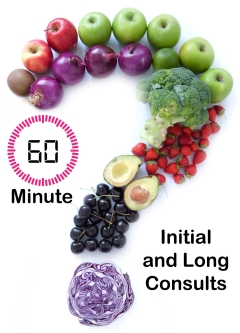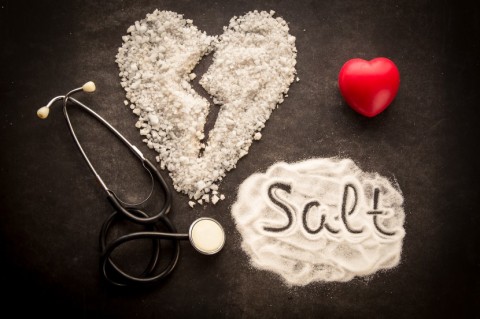DrCarney.com Blog
Salty Foods Boost Cardiovascular Disease Risk
According to the World Health Organization (WHO), cardiovascular diseases are the number one cause of death globally. In 2015, an estimated 17.7 million people died from various types of cardiovascular disorders worldwide. Cardiovascular diseases kill more than 600,000 people every year in the United States. To put this into a SAD perspective, 1 in every 4 deaths in the United States is attributable to cardiovascular disease.
Many risk factors for cardiovascular disease have been identified, including smoking, obesity, stress, diabetes, hypertension, physical inactivity, excessive alcohol intake, elevated serum levels of low density lipoproteins (LDL) and triglycerides, and unhealthy dietary choices. Excessive salt intake is one of the unhealthy dietary habits that increase the risk of developing hypertension, a major cardiovascular disease risk factor that is responsible for about 62% of stroke incidence and 49% of coronary heart disease (CHD) cases. Since table salt contains both sodium and chloride that are essential nutrients needed by the body for optimal functioning, how much salt can we safely consume each day?
The 2015 dietary guidelines recommend that Americans should keep their daily salt intake below 2,300 milligrams per day or just 1 teaspoon a day. However, the American Heart Association encourages individuals to consume even lower quantities of salt than the amounts recommended by the 2015 dietary guidelines, about less than 1500 milligrams of table salt per day. Several studies have also shown that decreases in salt consumption is associated with reduced cardiovascular disease development and mortality risk. The results of a 2009 study published in British Medical Journal showed that cutting down on salt intake could save approximately 3 million people from dying from cardiovascular diseases every year.
According to the Center for Disease Control and Prevention (CDC), more than 70% of the salt consumed by Americans come from processed and restaurant foods. Processed foods, such as cheese, sauces, pizza, sandwiches, salad dressings, baked foods, pickled foods, and cured meat and fish are loaded with large quantities of sodium chloride. Avoiding the consumption of these salt mines can significantly cut down an individual's risk of developing and dying from cardiovascular diseases, such as stroke, heart attack, and coronary heart disease.
Additional Information:
(1) Seven Ways Salt Impacts our Health
(2) Six Salty Foods that Sabotage Heart Health
(3) Endothelial function is impaired after a high-salt meal in healthy subjects.
(4) Consensus Action on Salt and Health: Salt and Cardiovascular Disease
One Hour Phone Consult with Dr. Carney

Telephone Food Coaching Sessions with Linda Carney MD
Due to demand for nutritional advice, Dr. Carney's offers Starch-Smart® System "Dietary Care Extraordinaire" Food Coaching telephone sessions. The first sessions is always one hour. Subsequent sessions can be thirty minutes or one hour:
Click Here For 60 Minute Food Coaching Session
Please Note: Food Coaching sessions are not medical appointments and are not intended to replace your own physician. No tests will be ordered and no prescriptions will be provided.
Preview the "Best Blood Pressure Plan" Trailer
More Health, Less Medicine: Why take drugs for life to lower blood pressure? Resolve blood pressures naturally, with less medication! Many of Dr. Carney's patients normalize to need no medicine at all, using science from her Starch-Smart® System. Discover which foods raise blood pressure, narrow the arteries, and damage those all-important endothelial cells. Dr. Carney teaches the best ways to dilate your arteries today, and ditch those meds for good.
When you subscribe to the blog, we will send you an e-mail when there are new updates on the site so you wouldn't miss them.




